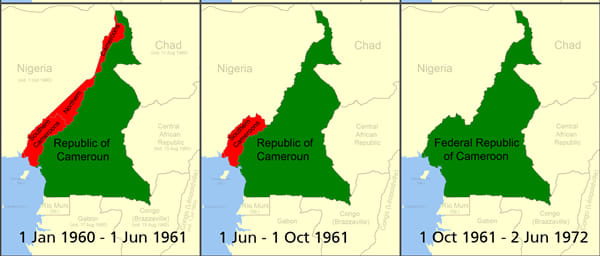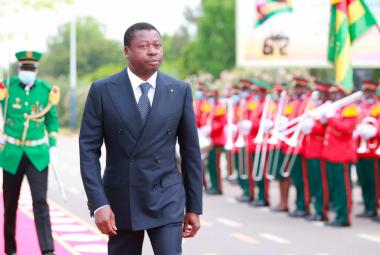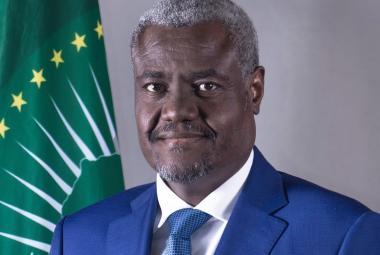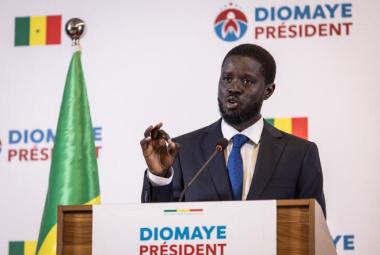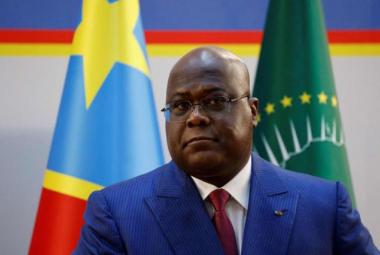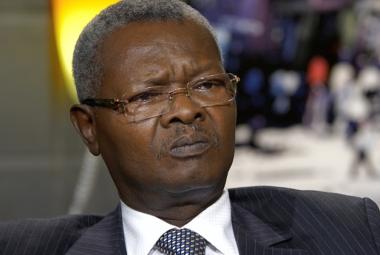It is 50 years today since the referendum of May 20, 1972 sealed the reunification of French-speaking Cameroon and English-speaking Cameroon. But now secessionist tendencies have been surfacing for a few years, since the English-speaking part of Cameroon has once again sounded the trumpet of “federalism”. Here is an article that our colleague, Serge Mathias Tomondji, had published in 2017 on the question, and which also addresses, first of all, the desire for secession of Biafra which was born again in Nigeria…
Is Africa reviving some of its 1960s struggles? At a time of Boko Haram and fevers of extremism of all kinds, an air of militant separatism rises in the skies of the continent, as if to strongly underline these nostalgias that are badly managed or in any case in no way stifled by half a century of ups and downs in social and institutional life. Indeed, if the Biafran secessionist temptation resurfaces, it is also good, no doubt, because the federal state has not succeeded in... uniting the energies and the sons of the giant of West Africa in a one and the same dynamic. To the point of secreting the seeds of a reconstitution of this Republic of Biafra established in the south-eastern part of Nigeria, the richest in oil reserves and which had fought, between 1967 and 1970, for a separation from the mother -country?
By disengaging from these new secessionist ambitions, in particular "through the voice of its ambassador to Nigeria", France - "support" of the independence rebellion of the end of the 1960s -, seems to take the broad vis-à-vis this grim affair of the past. In an interview with the Nigerian newspaper The Guardian, Denys Gauer insists that his country refuses to endorse "any group that will aim to bring Biafra to make another attempt at secession in Nigeria". Urging moreover "those who campaign for the independence of Biafra to rather work for the development of Nigeria", prey to the battering of the Islamist sect Boko Haram, serious concern of the hour.
Echoing this... focus of the country of human rights, which also reaffirms its "frank collaboration" with Nigeria in its fight against Boko Haram, the separatists are no less hanging up their quivers. For the two major groups that campaign in favor of this Biafran secession that we thought was definitively relegated to the drawers of history, the fight continues. The Movement for the Actualization of the Sovereign State of Biafra (Massob) and the Indigenous Peoples of Biafra (Ipob), very active on this issue, consider themselves invested with a "divine mission".
There is therefore certainly cause for concern about these secessionist tendencies which are resurfacing almost fifty years after the victory, in 1970, of the Nigerian federal army over the separatists of Colonel Ojukwu. And if we hear correctly the warning of the Chief of Staff of the Nigerian army, General Tukur Buratai, who had kindly "advised the secessionists to ignore their dream of independence because the military institution would tolerate any act that could lead to the disintegration of the country", we must also certainly listen to the recriminations that fan the bellows of forced separation. And find relevant and lasting solutions around a table that inspires and invites you to smoke the pipe of peace.
Likewise, shouldn't we trivialize the revolt that has been dividing Cameroonian society for several months now. How to understand these heartbreaks which, beyond people and issues, crystallize around belonging to two linguistic areas inherited from English and French colonization? How can we accept today and analyze the fact that in Cameroon, exceptional and beautiful "Africa in miniature", rich in more than two hundred ethnic groups which do not reject each other, prospering, several decades after the "reunification », a… «Anglophone crisis»? Great gods, how long will the leaders of this country allow this cursed war of the Anglophone against the Francophonie to escalate, through their silence, inaction and/or actions?
In total, we believe in the country of Ndolé, we must quickly stop this "Frenchification of English-speaking Cameroonians", experienced as a real "aggression" by this part of the people who want to claim and assume their "Anglophony". Federating a nation that is struggling with its reunification, this is now the challenge that the Cameroonian government must manage as quickly as possible, rather in peace and quiet, for the good of all. Will we then be able to listen to these frustrations which are rising from all sides, as old as the independence struggles and/or recently whipped up by certain political decisions, in order to preserve living together in a reinvigorated and united Cameroon?
© Serge Mathias Tomondji
Ouagadougou, March 14, 2017
*This article has been translated from French into English by Marcus Boni Teiga



